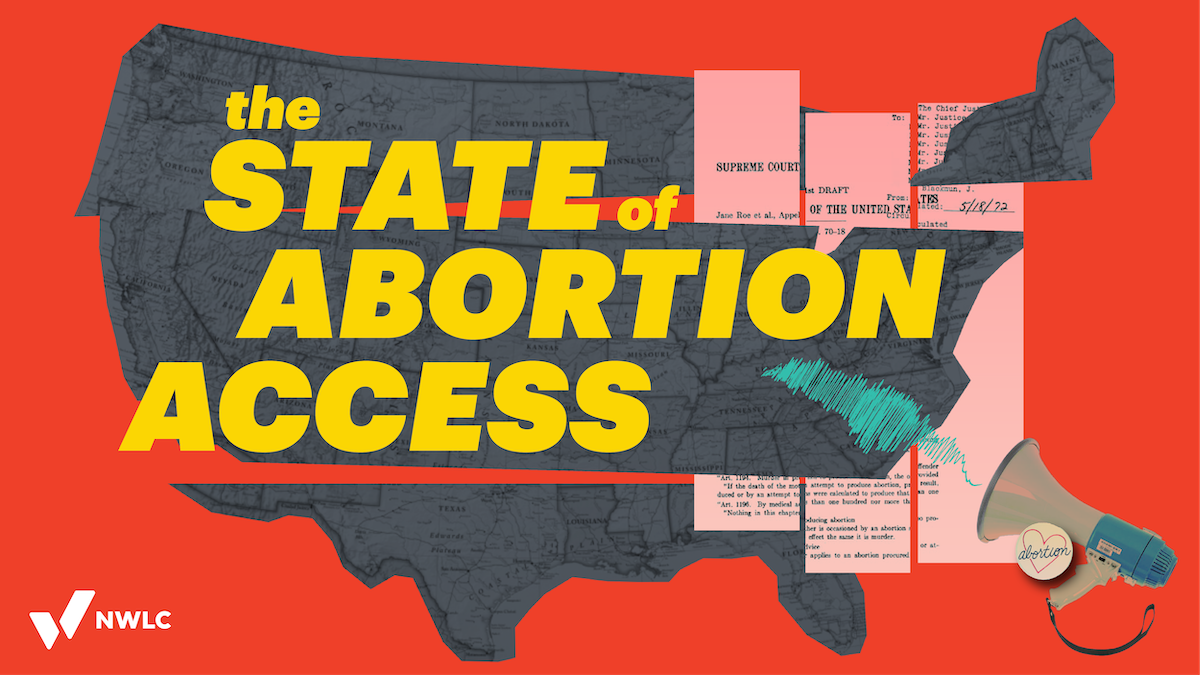The State of Abortion: Kentucky Providers Forced to Shut Down for One Week

Hey everyone—a lot can happen in two weeks, and unfortunately, it’s mostly a slew of bad updates when it comes to abortion access. In Kentucky, a new law was passed that forced abortion providers to close their doors to patients seeking abortion care. That law has been temporarily blocked by a federal judge and abortion care has resumed in Kentucky–for now. And Oklahoma passed a bill that effectively bans abortion, though it has yet to take effect. Bottom line, restrictions on abortion anywhere means abortion is under attack everywhere.
The good news is that there’s still a lot you have the power to do. From donating, to volunteering, to keeping yourself aware of bills that have and have not passed, everyone has the ability to be a resource to others on abortion access. Pay close attention to what bills are and are not in effect, so as not to spread misinformation.
With that said, let’s dive into the State of Abortion right now.
The Bad News
Florida
A Florida judge ruled that a 24-hour waiting period for abortion—which has been blocked by courts for seven years—is constitutional under Florida law and can go back into effect. And Florida Governor DeSantis signed HB 5, the 15-week abortion ban. It will go into effect on July 1 this year.
Donate to the Florida Access Network or volunteer your time.
Kentucky
Kentucky legislators passed HB3, a sweeping bill that would decimate abortion access through a 15-week abortion ban, extensive restrictions on medication abortion–including barring it by mail, and much more. Abortion providers in Kentucky were forced to stop performing abortions before the law was temporarily blocked by the courts, as it was impossible to continue their work without violating the law, which went into effect immediately.
Kentucky is now the only state where abortion services are effectively banned. Donate to the Kentucky Health Justice Network to help residents who will now have to travel outside of the state to access abortion care.
Oklahoma
Oklahoma Governor Kevin Stitt signed into law a bill that outlaws performing an abortion in any case with very limited exception. For performing an abortion or attempting to perform one, abortion providers would be sentenced to a felony punishable by a maximum fine of $100,000 or a maximum of 10 years in state prison, or both. The bill is not yet in effect and likely will be challenged in the courts.
“I know this bill will be challenged immediately by liberal activists from the coast, who always seem to want to come in and dictate, and mandate, and challenge our way of life here in the state of Oklahoma,” Gov. Stitt said. This is an interesting framing considering the governor wants to “come in and dictate, and mandate, and challenge” a person’s right to their own bodily autonomy. Not to mention, the law is being fought by amazing advocates on the ground in Oklahoma—learn more about them here.
If this bill were to take effect, it would impact not only Oklahoma residents, but also people in Texas who have been travelling to Oklahoma to access abortion care since Texas’ six-week ban went into effect. Donate to the Roe Fund to support those seeking abortions in Oklahoma.
Texas
Recently, you may have heard about how a woman in Texas was *arrested* (yes, you read that correctly) and charged with murder for her pregnancy ending. In response to her arrest, local grassroots activists organized protests, posted the woman’s bail, and set up a phone call campaign demanding her release. She has been released and charges against her have been dropped.
Learn more about this case here, and donate to the Frontera Fund—you can also help fundraise, work for their hotline, or find other ways to help on their website.
The Good News
Idaho
Idaho Supreme Court temporarily blocked the state’s recent passage of a six-week abortion ban. The bill had been set to take effect on April 22, but is now being reviewed by the courts. Let’s not forget that Idaho’s own governor stated his doubts about the bill’s constitutionality.
Maryland
Maryland lawmakers overrode Gov. Hogan’s veto of a bill permitting advanced practice clinicians—such as nurse practitioners, midwives and physician assistants—to provide abortions. More medical professionals will now be able to provide abortions, increasing access in the state. The bill will take effect on July 1.
Michigan
Michigan Governor Gretchen Whitmer filed a lawsuit last week challenging her state’s pre-Roe law banning abortion. With the Supreme Court likely rolling back or overturning Roe v. Wade this summer, Gov. Whitmer is affirming her support of abortion access and acting to protect reproductive rights for Michigan residents.
TLDR:
If the Supreme Court fails to protect Roe, then the fate of abortion access will rest primarily with state legislators, which is terrifying.
With countless abortion restrictions being drafted, signed, and implemented, many folks across the country are effectively already living in a post-Roe world. Even when governors fight back and veto these bills, it shows us how thin the line is between people having access or not. It shows us how essential it is to bolster that line of protection through organizing, volunteering, and demonstrating strong, unwavering support for abortion access.





